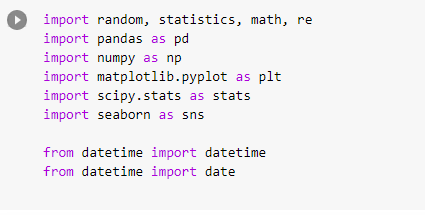The first principles of selling online:
1. Increase the number of people who see your product.
2. Increase the percentage of people who see your product that buy it.
3. Increase the percentage of people who buy your product that rave about it.
Writing increases all three.
More from Dickie Bush 🚢
THREAD: I've thought a lot about what it means to be wealthy.
But putting a "number" on it is a one-way ticket to the rat race.
Instead, here are 10 indicators of wealth (which have nothing to do with money):
1.
Wealth is the ability to choose:
• How you spend your time
• Where you spend your time
• Who you spend your time with
Learned from the wise @jamesclear
2.
Wealth is freedom from:
• Negative people
• Negative thoughts
• Negative emotions
• Forced obligations
@EricJorgenson's Almanack of @naval says it best:
Wealth is not freedom to, it's freedom from.
3.
Wealth is a calendar without recurring meetings.
Recurring meetings mean you're on someone else's schedule.
Empty calendars mean you're on your own schedule.
Here's an example
4.
Wealth is the ability to say no.
Early on, building wealth requires saying yes.
Yes to people, projects, and places you're not thrilled about.
But you've found wealth when you start saying no.
But putting a "number" on it is a one-way ticket to the rat race.
Instead, here are 10 indicators of wealth (which have nothing to do with money):
1.
Wealth is the ability to choose:
• How you spend your time
• Where you spend your time
• Who you spend your time with
Learned from the wise @jamesclear
2.
Wealth is freedom from:
• Negative people
• Negative thoughts
• Negative emotions
• Forced obligations
@EricJorgenson's Almanack of @naval says it best:
Wealth is not freedom to, it's freedom from.
3.
Wealth is a calendar without recurring meetings.
Recurring meetings mean you're on someone else's schedule.
Empty calendars mean you're on your own schedule.
Here's an example
Wealth pic.twitter.com/iS395O2h0Z
— Jack Butcher (@jackbutcher) February 3, 2021
4.
Wealth is the ability to say no.
Early on, building wealth requires saying yes.
Yes to people, projects, and places you're not thrilled about.
But you've found wealth when you start saying no.
More from Writing
Things we don’t learn in this article: that the author wrote David Cameron’s speeches during the period when they were intentionally underfunding the NHS and other services, directly creating the problem the author is concerned about now.
We also don’t learn that the paper it’s written in stridently supported those measures and attacked junior doctors threatening strike action over NHS cuts and long working hours, accusing them of holding the country to ransom.
We aren’t reminded that NHS funding and the future of health provision was a central part of previous election campaigns, and that attempts to highlight these problems were swiftly stomped on or diverted and then ignored by most of the press, including the Times.
I’d underline here that “corruption” doesn’t just mean money in brown envelopes: it describes a situation where much of an organisation is personally motivated to ignore, downplay or divert from malfeasance for personal reasons - because highlighting them would be bad for careers
Foges was Cameron’s speechwriter at the height of austerity; Forsyth is married to the PM’s spokesman; Danny F is a Tory peer; Parris is a former MP; Gove used to write for them regularly, and that’s before we get to professional mates-with-ministers like Shipman or Montgomerie.
Today we learn health services are brutally underfunded with scant support for hard pressed staff, although it\u2019s left unclear who is responsible for that and it appears to be an exceptional, totally unpredicted phenomenon, like a freak weather event. pic.twitter.com/StwFR7RejE
— Flying_Rodent (@flying_rodent) January 25, 2021
We also don’t learn that the paper it’s written in stridently supported those measures and attacked junior doctors threatening strike action over NHS cuts and long working hours, accusing them of holding the country to ransom.
We aren’t reminded that NHS funding and the future of health provision was a central part of previous election campaigns, and that attempts to highlight these problems were swiftly stomped on or diverted and then ignored by most of the press, including the Times.
I’d underline here that “corruption” doesn’t just mean money in brown envelopes: it describes a situation where much of an organisation is personally motivated to ignore, downplay or divert from malfeasance for personal reasons - because highlighting them would be bad for careers
Foges was Cameron’s speechwriter at the height of austerity; Forsyth is married to the PM’s spokesman; Danny F is a Tory peer; Parris is a former MP; Gove used to write for them regularly, and that’s before we get to professional mates-with-ministers like Shipman or Montgomerie.
You May Also Like
Nano Course On Python For Trading
==========================
Module 1
Python makes it very easy to analyze and visualize time series data when you’re a beginner. It's easier when you don't have to install python on your PC (that's why it's a nano course, you'll learn python...
... on the go). You will not be required to install python in your PC but you will be using an amazing python editor, Google Colab Visit https://t.co/EZt0agsdlV
This course is for anyone out there who is confused, frustrated, and just wants this python/finance thing to work!
In Module 1 of this Nano course, we will learn about :
# Using Google Colab
# Importing libraries
# Making a Random Time Series of Black Field Research Stock (fictional)
# Using Google Colab
Intro link is here on YT: https://t.co/MqMSDBaQri
Create a new Notebook at https://t.co/EZt0agsdlV and name it AnythingOfYourChoice.ipynb
You got your notebook ready and now the game is on!
You can add code in these cells and add as many cells as you want
# Importing Libraries
Imports are pretty standard, with a few exceptions.
For the most part, you can import your libraries by running the import.
Type this in the first cell you see. You need not worry about what each of these does, we will understand it later.

==========================
Module 1
Python makes it very easy to analyze and visualize time series data when you’re a beginner. It's easier when you don't have to install python on your PC (that's why it's a nano course, you'll learn python...
... on the go). You will not be required to install python in your PC but you will be using an amazing python editor, Google Colab Visit https://t.co/EZt0agsdlV
This course is for anyone out there who is confused, frustrated, and just wants this python/finance thing to work!
In Module 1 of this Nano course, we will learn about :
# Using Google Colab
# Importing libraries
# Making a Random Time Series of Black Field Research Stock (fictional)
# Using Google Colab
Intro link is here on YT: https://t.co/MqMSDBaQri
Create a new Notebook at https://t.co/EZt0agsdlV and name it AnythingOfYourChoice.ipynb
You got your notebook ready and now the game is on!
You can add code in these cells and add as many cells as you want
# Importing Libraries
Imports are pretty standard, with a few exceptions.
For the most part, you can import your libraries by running the import.
Type this in the first cell you see. You need not worry about what each of these does, we will understand it later.













